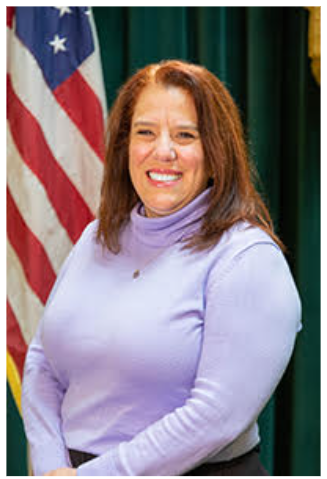Sen. Lauria reflects on legislative efforts to support primary care
We connected with Senator Pamela Lauria (District 32), a practicing primary care nurse practitioner at Coastal Medical and member of the CTC-RI Primary Care Workforce Task Force, on important work happening at the State House to bolster the primary care workforce.

Primary care in Rhode Island is facing an unprecedented workforce crisis. In what ways are you collaborating with CTC-RI and primary care leaders to address this?
I have been on the Primary Care Task Force and support the recommendations made in the Task Force's Strategic Roadmap for Primary Care. Additionally, I have been collaborating on legislation to address two of the biggest issues related to training enough primary care providers. First, we have a bill to address the insufficient number of training sites for clinical placements for students in primary care programs. The bill (Senate Bill 2716) will provide funding for the development of a curriculum and preceptor training for 30 clinical sites. It will also provide funding for the clinical sites to provide compensation to the preceptor in either a stipend or reduced productivity. Second, we have a bill to address barriers to being able to afford going into primary care by providing scholarships for students attending medical school, nurse practitioner and physician assistant programs (Senate Bill 2717). The scholarships are intended to cover the full cost of tuition and fees for their program, with a promise to remain in RI and practice in a primary care setting for at least eight years. Primary care does not provide the compensation of many specialties, and this would make the decision to enter this critical space in medicine more economically feasible.
Through your legislative leadership, what are you working toward or hoping to see during this General Assembly session to help strengthen primary care?
The legislation mentioned above will help address the training and recruitment of primary care providers for Rhode Island’s future. However, we must have more immediate remedies to retain our current primary care workforce who can practice just over our borders in Massachusetts or Connecticut for more money, often 20-30% more. Rhode Island must increase its insurance rates paid for primary care services in order for practices to be able to compensate providers enough to maintain and grow our workforce. I sit on the Health & Human Services Committee in the RI Senate and have advocated for OHIC to include primary care in its rate review process. Additionally, I have had many conversations with Senate leadership about the urgent need to increase Medicaid rates and the need to incentivize private insurers to increase their rates for primary care services.
In your years of experience as a practicing primary care nurse practitioner, what opportunities or successes are emerging to better support the workforce that we should continue to invest in or strengthen?
Advanced Practice Providers (NPs and PAs) are becoming an increasingly critical component of our primary care workforce. I have seen practices develop true care teams that work to blend physicians and APPs in a professional and collaborative way, rather than a top-down hierarchy. I think this approach needs to be encouraged and supported. I have also seen enhanced training and mentorship for recent graduates of medical school and APP programs to better support clinicians in the early phase of their careers. This needs to continue and grow while also developing supports for clinicians in their mid-career or late-career in order to help prevent burn-out.
